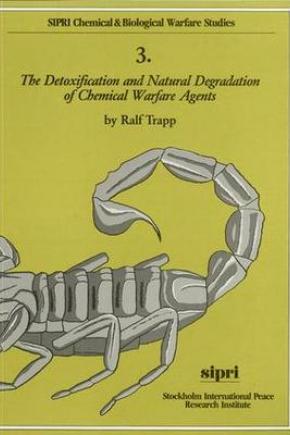The Detoxification and Natural Degradation of Chemical Warfare Agents
This monograph reviews the natural detoxification of chemical warfare agents under environmental conditions and their artificial decontamination. An understanding of the nature and efficiency of natural detoxification is critical for assessing the consequences of an attack with chemical weapons and for the planning of operations to cope with such a situation. The problems associated with such evaluations are discussed and areas where current knowledge is restricted are identified. The major task of artificial detoxification (decontamination) is reviewed both with regard to the principal methods and means which may be applied, and in terms of the operational considerations unique to combat and urban area conditions, respectively. A documented review of current decontamination practices is presented, and the adequacy or limitations of these defence measures is evaluated. The information and analysis in this monograph contribute to a more general understanding of the possible nature and consequences of chemical warfare.
Contents
1. Introduction
2. Natural detoxification of CW agents
3. Decontamination
4. Problems of decontamination under combat conditions
5. Problems of decontamination in civilian defence
6. General summary and conclusions
About the author
Ralf Trapp is a chemist by training. He is a researcher in the field of chemical toxicology with the GDR Academy of Sciences, Institute of Chemical Toxicology, Leipzig. He has published on chemical weapons disarmament for several years, and served as a governmental consultant on this matter.
About the series editor
Julian Perry Robinson is a SIPRI Consultant based in England. A chemist and lawyer by training, he was a member of the SIPRI research staff during 1968-71 and has held research appointments at the Harvard University Center for International Affairs, the Free University of Berlin, and the University of Sussex, UK, where he is currently a Senior Fellow of the Science Policy Research Unit. He has served as a consultant to the World Health Organization, the United Nations Secretariat, the International Committee of the Red Cross and the UN Environment Programme.
SIPRI Chemical & Biological Warfare Studies is a series of occasional papers intended primarily for specialists in the field of CBW arms control or for people engaged in other areas of international relations or security affairs whose work could benefit from a deeper understanding of particular CBW matters. The papers originate in studies commissioned by SIPRI as input for subsequent non-specialist SIPRI publications.

